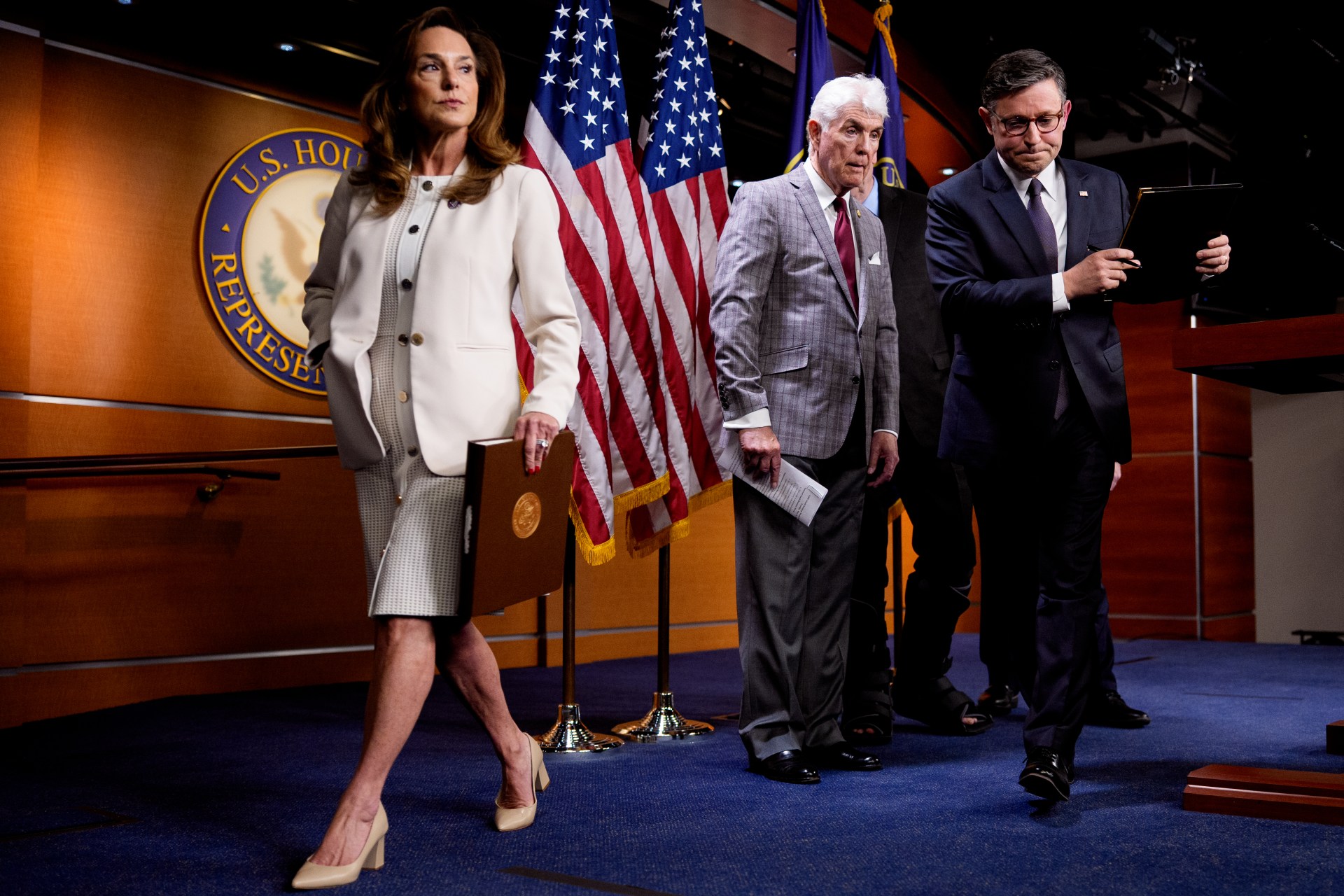In his latest column this week, Jonah observes: “if you show me a big problem, I can make the case that Congress’ dysfunction either created the problem or made it worse.” Read the rest of Jonah’s piece, take a quick perusal around the website, and it’s hard to disagree with that assessment.
Yuval Levin takes a look at the $36 trillion debt and observes that congressional “Republicans are in the process of ballooning the debt, and at times they seem not only unwilling to acknowledge it but even genuinely unaware of it.”
When it comes to the turmoil and pain felt by Trump’s on-again off-again tariff regime, this is a policy area where Congress could bring stability any day now by reasserting its constitutional authority to set tariffs, but it simply refuses to do so.
And Congress is nowhere to be found when it is needed as a check on the most outlandish and serious unconstitutional actions taken by the executive branch. Nick Catoggio observes that there’s been a surprising backlash among populist pundits to Trump’s acceptance of the gift of jet from the government of Qatar, but their outrage has not been matched by Republican members of Congress.
Tomorrow on the website, I will take a look at top White House adviser Stephen Miller’s warning that the president is considering suspending the writ of habeas corpus but find very little pushback on Capitol Hill to this blatantly unconstitutional threat.
—John
Top Stories From the Dispatch Politics Team
House Speaker Mike Johnson has made clear that he’ll try to redirect federal funds away from abortion providers like Planned Parenthood as part of the budget reconciliation process, which includes special rules that allow the Senate to bypass the typical 60-vote hurdle for legislation and pass a reconciliation bill by a simple majority. But Republicans tried—and failed—to defund Planned Parenthood via reconciliation the last time they controlled the White House and both chambers of Congress in 2017. A look back at why Republicans failed in their last attempt may shed light on whether they will fail yet again in 2025—especially with such a slimmer and more fractious House majority.
Treasury Secretary Scott Bessent and the Trump administration over the weekend announced an agreement between the United States and China to pause, for 90 days, the escalated tariffs between the two countries. The announcement signaled movement in the right direction for those in Washington who believe Trump’s tariffs are ill-conceived and economically detrimental—which, these days, is pretty much everyone not in the administration or reflexively defensive of it. But there are zero signs Trump or his team are ready to embrace trade liberalization and abandon their faith-based belief that the path to long-term economic prosperity is trade protectionism.
New Hampshire Democrats are cautiously optimistic the Democratic National Committee will reverse course and restore their state’s historic “first in the nation” presidential primary to its previous perch atop the party’s nominating calendar. For Democrats, re-sanctioning the primacy of the New Hampshire primary virtually guarantees the state attracts a crowd of contenders and plays a central role in picking the party’s 2028 nominee. For Republicans, it ensures disaffected liberals and center-left independents aren’t discouraged from voting in the Democratic primary and tempted to participate in what could be a robust GOP race to succeed term-limited President Donald Trump.
Georgia Gov. Brian Kemp was certainly the GOP’s best chance to wrest control of one of Georgia’s Democratic-controlled Senate seats—yet no amount of appeals from Sen. John Thune, the majority leader, nor other senators, donors, or party bigwigs could convince Kemp to spend the final two years of his term in Atlanta running for a new job in Washington. There’s no doubt some strategy at work here—better to run for president in 2028, as Kemp may do, as a successful former governor of a key swing state than as a mere freshman senator. But there are other factors, from the perception that not much gets done in the Senate these days to Kemp’s age (he’ll turn 62 this fall) that made the at least six-year commitment of a full term unattractive.










Please note that we at The Dispatch hold ourselves, our work, and our commenters to a higher standard than other places on the internet. We welcome comments that foster genuine debate or discussion—including comments critical of us or our work—but responses that include ad hominem attacks on fellow Dispatch members or are intended to stoke fear and anger may be moderated.
With your membership, you only have the ability to comment on The Morning Dispatch articles. Consider upgrading to join the conversation everywhere.